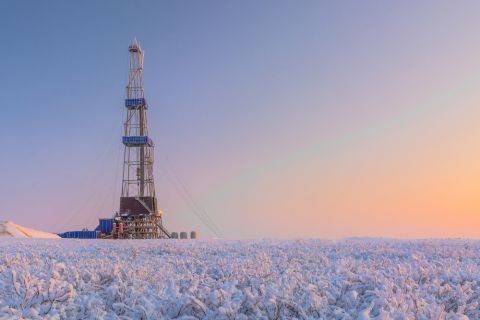bp and Microsoft Corp. have agreed to collaborate as strategic partners on Sept. 15 to further digital transformation in energy systems and advance the net zero carbon goals of both companies. This includes a co-innovation effort focused on digital solutions, the continued use of Microsoft Azure as a cloud-based solution for bp infrastructure and bp supplying renewable energy to help Microsoft meet its 2025 renewable energy goals.
“bp is determined to get to net zero and to help the world do the same. No one can do it alone – partnerships with leading companies like Microsoft, with aligned ambitions, are going to be key to achieving this,” William Lin, bp executive vice president for regions, cities & solutions, said. “By bringing our complementary skills and experience together, we are not only helping each other achieve our decarbonization ambitions but also creating opportunities to support others on their journey towards reducing carbon emissions.”
Earlier this year, bp revealed its ambition to become a net zero emissions company by 2050 or sooner, and to help the world reach net zero. By the end of the decade, it aims to have developed around 50 gigawatts of net renewable generating capacity—a 20-fold increase on what it has previously developed, increased annual low carbon investment 10-fold to around $5 billion and cut oil and gas production by 40%. In January 2020, Microsoft uveiled its goal to be carbon negative by 2030 and remove more carbon from the environment than it has emitted since its founding by 2050.
A memorandum of understanding (MOU) signed by bp and Microsoft recognizes the capabilities that each company can provide to accelerate progress towards each’s sustainability goals and help the world decarbonize.
The co-innovation effort will initially be focused on four areas that combine Microsoft’s digital expertise with bp’s deep understanding of energy markets: smart and clean cities—identifying synergies between Microsoft’s ‘Smart Cities’ initiative and bp’s ‘Clean Cities’ vision, with a goal of identifying areas for strategic collaboration to help cities achieve their sustainability aims; clean energy parks—co-development of innovative, clean energy parks with an ecosystem of low carbon technologies such as carbon capture use and storage (CCUS) to prevent or reduce emissions; consumer energy—exploring innovative ways to harness the power of data-driven, personalized, actionable insights to empower energy consumers to manage their home energy use and reduce carbon emissions; and Industrial Internet of Things (IoT) solutions—delivering an ‘intelligent edge’ of capabilities to bp production and operations facilities.
For both bp and Microsoft, low carbon is part of a wider sustainability agenda and the companies aim to deepen collaboration in this area over time.
Recommended Reading
US EPA Expected to Drop Hydrogen from Power Plant Rule, Sources Say
2024-04-22 - The move reflects skepticism within the U.S. government that the technology will develop quickly enough to become a significant tool to decarbonize the electricity industry.
Exclusive: ‘Regulatory Tsunami’ a Top Priority for American Producers, Says AXPC’s Bradbury
2024-04-22 - Regulatory considerations have significant implications for how oil and gas companies evaluate risk, and it’s a top priority for American energy producers right now, said American Exploration & Production Council CEO Anne Bradbury at CERAWeek by S&P Global.
Biden Administration Criticized for Limits to Arctic Oil, Gas Drilling
2024-04-19 - The Bureau of Land Management is limiting new oil and gas leasing in the Arctic and also shut down a road proposal for industrial mining purposes.
Exclusive: The Politics, Realities and Benefits of Natural Gas
2024-04-19 - Replacing just 5% of coal-fired power plants with U.S. LNG — even at average methane and greenhouse-gas emissions intensity — could reduce energy sector emissions by 30% globally, says Chris Treanor, PAGE Coalition executive director.
Renewed US Sanctions to Complicate Venezuelan Oil Sales, Not Stop Them
2024-04-19 - Venezuela’s oil exports to world markets will not stop, despite reimposed sanctions by Washington, and will likely continue to flow with the help of Iran—as well as China and Russia.




